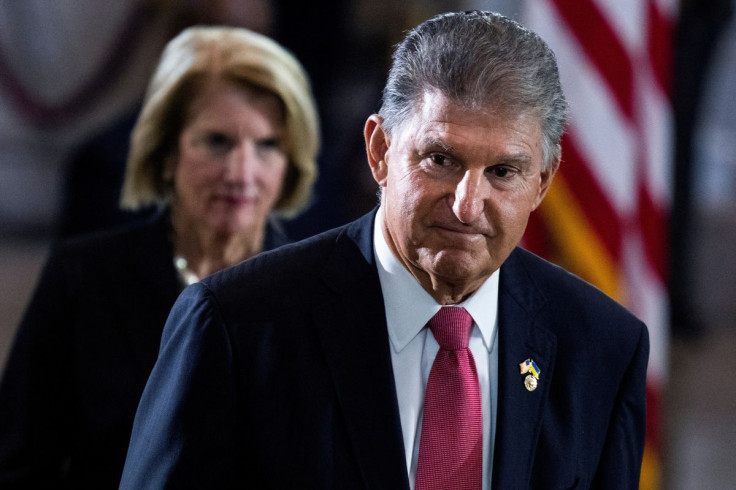Biden Says He Will Act On Climate After Talks Collapse In Senate

President Joe Biden said on Friday he would act on his own to cut climate emissions and urged his fellow Democrats to pass the few elements of their sweeping domestic policy package they can agree on after talks in the Senate collapsed once again.
Biden said he would take unspecified steps to reduce climate emissions after Senator Joe Manchin, a lone Democratic holdout, said he would not back tax hikes and emissions-reductions incentives that have stalled in Congress.
Biden urged lawmakers to separately pass provisions of the package that Manchin supports, such as lowering drug costs and shoring up the Medicare health plan for people over 65.
"If the Senate will not move to tackle the climate crisis and strengthen our domestic clean energy industry, I will take strong executive action to meet this moment," Biden said in a statement.
It was the latest setback for Biden's Democrats, who have struggled for more than a year to pass a sweeping package that would allocate hundreds of billions of dollars in emissions-reduction incentives, hike taxes for corporations and the wealthy, and lower prescription drug costs. Proposals to expand safety-net programs have already been abandoned.
Those talks appeared to collapse after Manchin told Senate Democratic Leader Chuck Schumer this week that he would only support the drug-pricing and Medicare portions, according to a Democrat briefed on the conversations.
Biden urged lawmakers to act quickly to pass those elements to prevent an increase in Medicare premiums next month.
"The Senate should move forward, pass it before the August recess, and get it to my desk so I can sign it," he said.
Manchin told a West Virginia radio station that he was still open to talks but would not support climate incentives until he had a better sense of economic conditions.
"I want climate. I want an energy policy," he said. "I would not put myself through this if I wasn't sincere."
Manchin represents the coal-producing state of West Virginia and has been skeptical about some efforts to tackle climate change.
Without Manchin's support, Democrats would be unable to advance the legislation in the Senate, which is divided 50-50 between Republicans and Democrats.
"Senator Manchin's refusal to act is infuriating," Democratic Senator Martin Heinrich said on Twitter.
That would leave them unable to deliver on major portions of Biden's domestic agenda ahead of the Nov. 8 midterm elections, in which Republicans are favored to win control of at least one chamber of Congress.
Biden will now have to rely largely on executive actions to tackle climate change. Without providing specifics, he said his actions would address climate change, create jobs, bolster U.S. energy security and domestic manufacturing, and shield the economy from fossil-fuel price spikes.
Those rules could be overturned by future presidents.
Democratic Senator Sheldon Whitehouse said Biden could impose a carbon border tariff on imports from countries with relatively worse carbon emissions, require carbon capture from major emitters and impose stronger emissions controls on vehicles.
© Copyright Thomson Reuters 2024. All rights reserved.





















